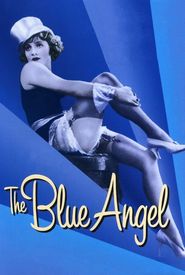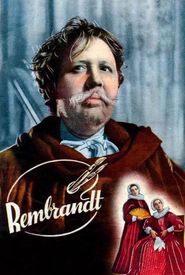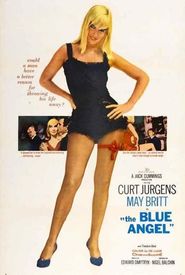Carl Zuckmayer's formative years began with his enrollment at a humanistic high school in the charming city of Mainz, where he diligently pursued his secondary school diploma with unwavering dedication and enthusiasm. Subsequently, he volunteered to serve in the First World War, subsequently devoting himself to academic pursuits in Frankfurt/M and Heidelberg from 1918 to 1920, during which time he studiously delved into the realms of law, zoology, art history, and economics, further broadening his intellectual horizons and cultivating his academic prowess. Following his decision to discontinue his studies, Zuckmayer embarked on a career as a dramaturge and assistant director in Berlin, Kiel, and Munich, laying the groundwork for his future endeavors in the world of theatre, meticulously honing his skills and gaining invaluable experience in the process, ultimately paving the way for his rise to prominence as a renowned playwright and dramatist.
A unique and intriguing individual, this person's life story is a fascinating tale of triumph and perseverance, marked by significant milestones and life-altering experiences that have shaped their personality, values, and aspirations.
Carl Zuckmayer was a renowned German playwright, novelist, and poet, whose literary career spanned over six decades, leaving an indelible mark on the world of theatre and literature.
Born on January 30, 1896, in Diez, Germany, Zuckmayer grew up in a family of modest means, with his father being a stationmaster and his mother a homemaker. This humble upbringing would later influence his writing, which often focused on the lives of ordinary people and their struggles.
Zuckmayer's early years were marked by a passion for music and the arts, with the young boy learning to play the piano and developing a love for literature. He began writing his own stories and poems at a young age, and by the time he was in his early teens, he had already published his first works in local newspapers and magazines.
After completing his secondary education, Zuckmayer went on to study literature and philosophy at the University of Heidelberg, where he was heavily influenced by the works of German Romantic writers such as Friedrich Hölderlin and E.T.A. Hoffmann.
Following his studies, Zuckmayer moved to Berlin, where he became involved in the city's vibrant literary and theatrical scene. He wrote numerous plays, including "Der Hauptmann von Köpenick" (The Captain of Köpenick),which premiered in 1931 and became a huge success.
Zuckmayer's work often explored themes of identity, morality, and the human condition, and he was known for his ability to craft complex, nuanced characters that audiences could relate to. His plays often blended elements of realism, fantasy, and humor, making him a beloved figure in German theatre.
Despite his success, Zuckmayer's career was not without its challenges. He was forced to flee Germany in the 1930s due to his opposition to the Nazi regime, and he spent several years in exile in Switzerland and the United States.
During his time in exile, Zuckmayer continued to write, producing some of his most famous works, including "Des Teufels General" (The Devil's General),which premiered in 1957 and tells the story of a German general who defies the Nazi regime.
After the war, Zuckmayer returned to Germany, where he continued to write and produce plays, as well as novels and poetry. He was awarded numerous honors and accolades for his work, including the Goethe Prize in 1966.
Throughout his life, Zuckmayer remained committed to his craft, continually pushing the boundaries of language and form to explore the complexities of human nature. His legacy continues to inspire writers and artists around the world, and his plays remain some of the most beloved and enduring works in the German theatrical canon.
Carl Zuckmayer's initial foray into the world of dramatic writing, marked by the premiere of his play "Way of the Cross", took place in Berlin during the year 1920. Despite the anticipation and excitement that surrounded this inaugural venture, it unfortunately failed to captivate the hearts and minds of the audience, resulting in the swift removal of the production from the program after merely three days. This unforeseen turn of events left Zuckmayer without a steady income, forcing him to reassess his career trajectory and adopt a new identity as a freelance writer.
In the subsequent years of 1924 and 1925, playwright Carl Zuckmayer embarked on a brief yet remarkable collaboration with the renowned German playwright Berthold Brecht at the prestigious Deutsches Theater in Berlin, a creative partnership that would undoubtedly have a profound and lasting impact on his artistic development, likely shaping his writing style, thematic explorations, and overall artistic trajectory.
Carl Zuckmayer's artistic trajectory was characterized by a significant milestone in 1925, when his renowned comedic masterpiece, "The Happy Vineyard", debuted to widespread acclaim. This theatrical production, a tour de force of German literature, succeeded in capturing the very essence of the Rhine-Hesse region's distinct cultural heritage and way of life.
With a masterful blend of humor and a touch of coarseness, the play's singular tone and style resonated deeply with audiences, ultimately solidifying its status as the most successful German theater play of the 1920s.
Noted playwright Carl Zuckmayer's remarkable accomplishments culminated in the esteemed Heinrich Kleist Prize, a distinguished honor that unequivocally acknowledged his extraordinary artistic abilities and the profound influence of his literary creations on the world of theater and beyond.
It was the year 1928 that witnessed the emergence of Carl Zuckmayer, a celebrated playwright and author, as he made a substantial impact on the literary world by publishing not one, but two remarkable works that would go on to solidify his reputation as a master of his craft. Among these notable releases were the Rhenish robber drama "Schinderhannes" and the comedy "Katharina Knie", both of which demonstrated his remarkable ability to craft captivating stories that would leave audiences enthralled and eager for more.
Carl Zuckmayer, the celebrated playwright and author, was a man of many talents and accomplishments. Born in the year 1896, Zuckmayer was a German writer who made a significant impact on the literary world with his works.
Around the same time, Carl Zuckmayer, a renowned German playwright and screenwriter, crafted the script for the highly acclaimed film "The Blue Angel", a project that drew inspiration from Heinrich Mann's influential play "Professor Unrat", which had a profound impact on the literary world.
This cinematic masterpiece, boasting an impressive cast that included the enigmatic and talented Marlene Dietrich, went on to become a global phenomenon, captivating audiences worldwide and cementing Zuckmayer's status as a masterful screenwriter, further solidifying his reputation as a prominent figure in the world of film.
Carl Zuckmayer's remarkable achievements showcased his remarkable versatility, effortlessly transcending boundaries between various artistic disciplines, ultimately cementing his reputation as a towering figure within the esteemed realm of German literature and film, leaving an indelible mark on the cultural landscape.
Carl Zuckmayer, a highly acclaimed and celebrated German playwright, was bestowed the esteemed Georg Büchner Prize, a most coveted and prestigious honor within the literary realm, in acknowledgement of his remarkable and outstanding contributions to the art of playwriting, a testament to his remarkable talent and dedication to his craft.
This distinguished recognition was subsequently followed by the acquisition of the picturesque and idyllic "Wiesmühl" estate, situated in the charming and picturesque town of Henndorf, nestled in the heart of the picturesque Austrian region of Salzburg, in the year 1926.
Throughout the 1930s, Carl Zuckmayer's professional and personal accomplishments reached new heights, with his work garnering widespread critical acclaim and commercial success.
But this era of triumph was abruptly and tragically cut short when Zuckmayer's outspoken criticism of the Nazi regime's ideology and policies led to a series of escalating conflicts with the authorities.
In 1933, the Nazi government, increasingly intolerant of dissenting voices, imposed a strict censorship regime that effectively silenced Zuckmayer's work.
As a direct result of his vocal opposition, Zuckmayer was subsequently banned from publishing and performing his writings, a devastating blow to his career and personal life.
This drastic measure marked a significant turning point in Zuckmayer's life, as he was forced to abandon his homeland and go into exile, continuing his work in secret, under the constant threat of detection and persecution.
Zuckmayer's forced exile had a profound impact on his personal and professional life, as he struggled to maintain his creative output while living in hiding, always looking over his shoulder, fearful of being discovered and arrested.
Despite these challenges, Zuckmayer remained committed to his craft, continuing to write and produce his work, even in the face of overwhelming adversity, his unwavering dedication to his art a testament to his unshakeable spirit and unyielding commitment to his values.
As the tumultuous events of 1938 began to unfold with unbridled ferocity, Carl Zuckmayer's life was suddenly and irrevocably altered, forever etched in the annals of his personal history by the annexation of Austria, a territory that had once held a special significance and sense of belonging for him.
Zuckmayer's odyssey, marked by unrelenting resolve and an unwavering desire for a fresh start, found him venturing into the unknown, navigating the treacherous terrain of international borders, as he traversed the picturesque landscapes of Switzerland and the vibrant culture of Cuba, before ultimately arriving on the sun-kissed shores of the United States, a testament to his unyielding spirit and unshakeable determination to rebuild his life.
Carl Zuckmayer
Upon his arrival in the United States of America, the esteemed playwright and screenwriter Carl Zuckmayer embarked upon a new chapter in his life, initially securing a livelihood through his exceptional writing talents and his ability to engage and educate as a lecturer. Yet, as time passed, the allure of a more tranquil and serene existence began to take hold of his imagination, and thus, he made the shrewd decision to rent a picturesque farm in the idyllic state of Vermont, a choice that would ultimately prove to be a most wise and fortuitous one.
Carl Zuckmayer's life in Vermont, commencing in 1941, was characterized by an unwavering sense of stability and serenity, as he dedicated himself to the meticulous care of his farm, thereby fostering a strong sense of camaraderie with his new neighbors.
As the tumultuous and devastating Second World War, a global conflict that had ravaged the world for six long and arduous years, finally began to recede into the distant past, a distinguished and accomplished individual was selected by the United States government to undertake a pivotal mission of great significance and import.
This notable person, whose reputation had been forged in the crucible of war and whose expertise had been honed through years of service to the nation, was entrusted with the weighty responsibility of returning to the war-torn nation of Germany.
Their journey, which would take them to the very heart of a country still reeling from the aftershocks of conflict, was a testament to the enduring commitment of the American government to the principles of peace, reconstruction, and reconciliation.
The individual in question was a seasoned veteran of the war effort, with a deep understanding of the complexities and nuances of the conflict, as well as a profound empathy for the people of Germany, who had been subjected to the brutal and merciless forces of war.
As they set foot on German soil, they were met with a mixture of emotions: a sense of sadness and loss, tempered by a determination to help rebuild and restore a nation that had been ravaged by the devastating consequences of war.
Their mission, which would take them to the farthest reaches of the country, was one of hope and renewal, as they worked tirelessly to promote understanding, cooperation, and peace between the United States and Germany, and to help the people of Germany rebuild their shattered lives.
Carl Zuckmayer, a celebrated playwright and poet, embarked upon a remarkable odyssey spanning the years 1946 and 1947, at the behest of the American government, which entrusted him with the daunting task of conducting a meticulous and comprehensive examination of the war-ravaged German cultural landscape.
Carl Zuckmayer, a celebrated and distinguished figure, was formally bestowed the illustrious Federal Cross of Merit in the year 1955, a testament to his remarkable achievements and outstanding contributions to his field. This prestigious accolade marked the beginning of a sequence of esteemed recognitions that would subsequently be bestowed upon him, further solidifying his reputation as a trailblazer and a luminary in his profession.
The Kleist Prize, a prestigious and highly esteemed award within the literary community, was bestowed upon him, thereby firmly establishing his reputation as a consummate master of the written word. His extraordinary talent, a true gift, was subsequently recognized and honored with the presentation of the Heinrich Heine Prize, a distinction that paid tribute to his remarkable and outstanding contributions to the world of literature, a testament to his enduring impact and influence.
Carl Zuckmayer's remarkable career reached new heights in 1952 when he was conferred the esteemed Goethe Prize, a resounding acknowledgement of his unrelenting passion for his art. This prestigious honor served as a testament to his unwavering commitment to his craft, a dedication that had spanned many years.
In addition to this notable recognition, Carl Zuckmayer's academic achievements were also celebrated, as he was bestowed an honorary doctorate from the renowned University of Bonn. This esteemed institution, revered for its rich academic heritage, recognized Carl Zuckmayer's intellectual pursuits and outstanding contributions to the world of literature and the arts.
It was in the year 1960 that the crowning achievement of his remarkable and storied career was finally realized, as he was bestowed with the esteemed Great Austrian State Prize, a prestigious accolade that served as a testament to his extraordinary accomplishments and contributions within the realm of literature, thus cementing his status as a luminary figure within the literary world.
It was in the year 1958 that a celebrated author embarked upon a pivotal decision, opting to relocate to the charming hamlet of Saas-Fée, situated within the awe-inspiring Swiss Alps, a region renowned for its unspoiled natural beauty and majestic mountainous landscape.
This extraordinary personality's illustrious literary trajectory achieved unprecedented success with the publication of their highly acclaimed and deeply personal memoir, elegantly subtitled "As if it were a piece of mine", in the calendar year 1966.






















